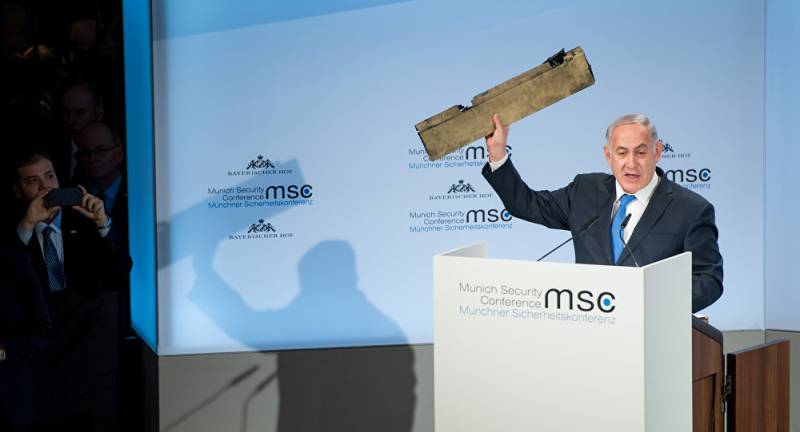Iranian FM, Israeli PM clash at Munich Security Conference in Germany
Shares

MUNICH – Iranian Foreign Minister Mohammad Javad Zarif and Israeli Prime Minister Benjamin Netanyahu on Sunday traded barbs and threats, speaking about Iran nuclear deal and Tehran's role in the settlement of conflicts in the Middle East, during the final day of the 54th Munich Security Conference (MSC) in Germany.
Apart from Netanyahu and Zarif, multiple politicians from various countries spoke on day three of the MSC, including Lebanese Defense Minister Yaacoub Sarraf, Saudi Foreign Minister Adel Jubeir, and UN Special Envoy for Syria Staffan de Mistura.
The politicians discussed such major regional security issues as the Syrian settlement, the Palestinian-Israeli conflict, and the situation in the Persian Gulf.
Netanyahu said on the final day of the MSC that he was aware of Iran’s alleged plans to unite Tehran and Syria’s Tartus to create a single state.
"Israel will continue to prevent Iran from establishing a permanent military presence in Syria. Israel will continue to act to prevent Iran from establishing another terror base," the Israeli prime minister said.
Netanyahu’s speech culminated with the demonstration of alleged part of Iran’s drone downed by the Iranian army last Saturday. The Israeli Prime Minister addressed the Iranian Foreign Minister Mohammad Javad Zarif while demonstrating the drone part.
"Mr. Zarif, do you recognize this? You should. It's yours… Don't test Israel’s resolve," Netanyahu said.
During his speech at the MSC, Netanyahu criticized the Joint Comprehensive Plan of Action (JCPOA), commonly referred to as Iran nuclear deal. The multilateral agreement should be scrapped if Tehran continues its nuclear enrichment research, Netanyahu said.
"Such a radical regime would be unrecognizable in its aggression once it has atomic bombs and the means to deliver them. So you have to fix it. Whether you can do it within the deal, fine, if you can't, you should scrap it," the Israeli prime minister pointed. The Israeli official also called for tough sanctions against Iran <link>to prevent Tehran from developing its nuclear program which, according to Netanyahu, is not limited to the peaceful use of nuclear energy.
Jubeir supported Israel’s stance on Iran nuclear deal, saying that the checks of the International Atomic Energy Agency (IAEA), which is monitoring the JCPOA implementation, are not enough, as they should also be held at Iran’s military sites, which is not stipulated by the deal.
The JCPOA does not contain Iran’s aggressive behavior, Jubeir pointed out.
Netanyahu, in his turn, noted that the Iranian alleged aggression contributed to the rapprochement between the Israelis and the Palestinians.
John Kerry, the former US state secretary, who has participated in person in the talks on the JCPOA, has however spoken in support of the deal during the MSC. The scrapping of the agreement might provoke a military conflict in the region, Kerry suggested.
Kerry also expressed disagreement with Israel’s claims that Iran would possess nuclear weapons in 10 years. The US ex-state secretary, however, noted that the JCPOA failed to cover a number of issues, such as respect for human rights in Iran.
*Iran Calls for Increased Trust in Persian Gulf*
Zarif, who has been addressing the MSC several hours after Netanyahu, called for a new security architecture in the Persian Gulf, which implies that there should be "a strong region, rather than a strong man in the region."
"We want a strong region. We do not want to be the hegemon in the region, as we believe that the era of hegemony has long passed regionally as well as globally," the official said.
